From Prison to Powerbroker: The Paradox of Basu and Surjeet in Congress-Communist Politics
In 1962, the Nehru government jailed Communist leaders like Jyoti Basu and Harkishen Singh Surjeet as suspected “Chinese agents.” Decades later, these same men became powerbrokers. Basu nearly becoming Prime Minister, and Surjeet crafting UPA-1 with Congress.
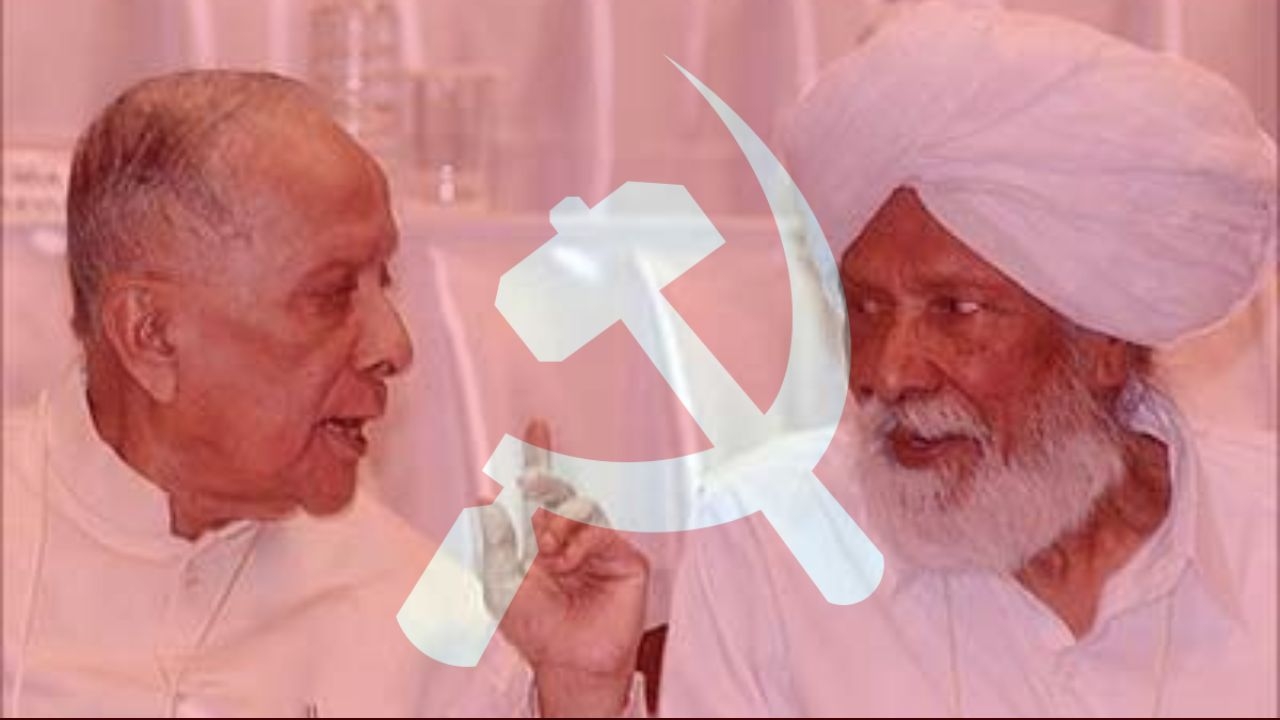
In the turbulent days following the 1962 India-China war, key Communist leaders were arrested under suspicion of being “pro-China” or “anti-national” agents. Among them was Jyoti Basu, long seen as a stalwart of India’s left. Decades later, Basu came within a whisker of becoming Prime Minister with Congress’s outside backing.
Meanwhile, Harkishen Singh Surjeet, also targeted in those 1962 security crackdowns, later emerged as a master of coalition politics, helping to prop up the Congress-led UPA government in 2004.
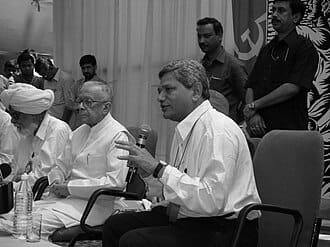
The journey of both men, from “state enemies” to kingmakers, raises unsettling questions about ideological consistency, political expediency, and the moral costs of power for India’s major parties aka CPI-CPM and Congress.
In November 1962, as India reeled from Chinese offensives in the Himalayas, the Nehru government invoked sweeping security and preventive detention laws. In a climate of paranoia and national emergency, many leaders on the left were arrested. Among them, Jyoti Basu was jailed in Calcutta on November 21, 1962, accused of “hostile propaganda” and alleged obstruction of India’s war effort.
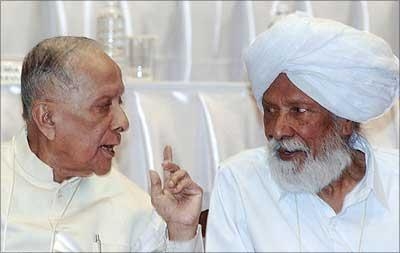
The practice was part of a larger crackdown that lumped Indian communists with suspected Chinese sympathizers under broad definitions of “misconduct.” Basu was eventually released in December 1963, following legal pressure and shifting political winds.
The case of Harkishen Singh Surjeet, however, is more ambiguous. Surjeet, a CPI and later CPI(M) leader from Punjab, has widely been seen as a tenacious political strategist. Contemporary academic and archival sources do not conclusively show his arrest in 1962 under Chinese-agent suspicion. Surjeet’s biographies and party documents primarily chart his role in agrarian politics, Punjab clandestine work, and later coalition dealings.
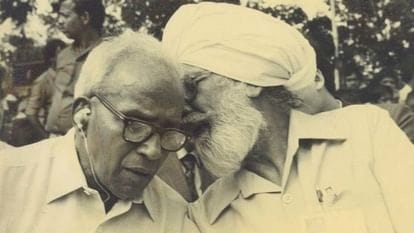
One often-cited claim, found in a 2008 Guardian profile, asserts that “By 1944 Surjeet was propounding his own thesis for a Sikh homeland on the model of Pakistan being proposed by the Muslim League.”
This reference is sometimes invoked to suggest early flirtations with militant separatism or experiments in identity politics. However, such assertions remain deeply contested and poorly substantiated. Surjeet in his later political life explicitly opposed Sikh separatist movements and worked for national unity.
That said, Surjeet did raise early concerns about Sikh extremist figures receiving shelter abroad. In the 1980s, he flagged Canadian support for radical Sikh leaders and warned of international elements bolstering extremist ideology. While not equivalent to drafting a “Khalistan proposal,” this indicates an awareness and a political posture vis-à-vis Sikh separatism.
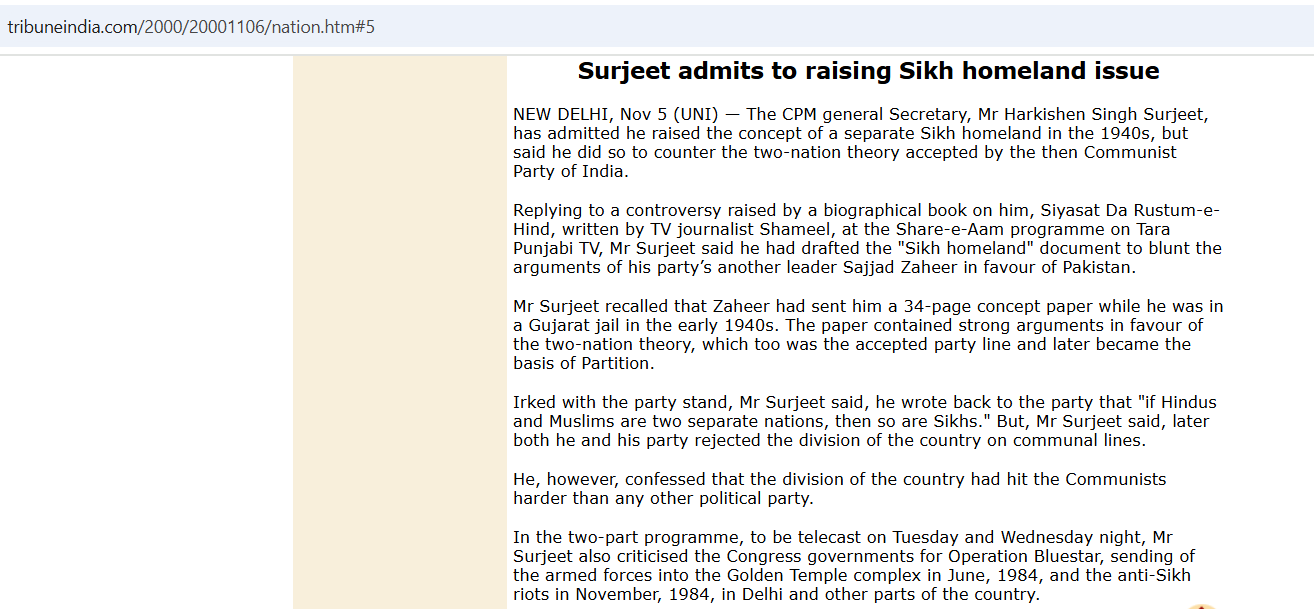
Fast forward to the 1990s, and we see Basu in a position few would have predicted in 1962. After the collapse of Congress dominance, the United Front coalition emerged in 1996, and Basu was put forth as a compromise candidate for Prime Minister. But the CPI(M) Politburo, wary of supporting a bourgeois coalition, vetoed the plan. Basu later called that decision an “historic blunder” that cost the Left its greatest national opportunity.
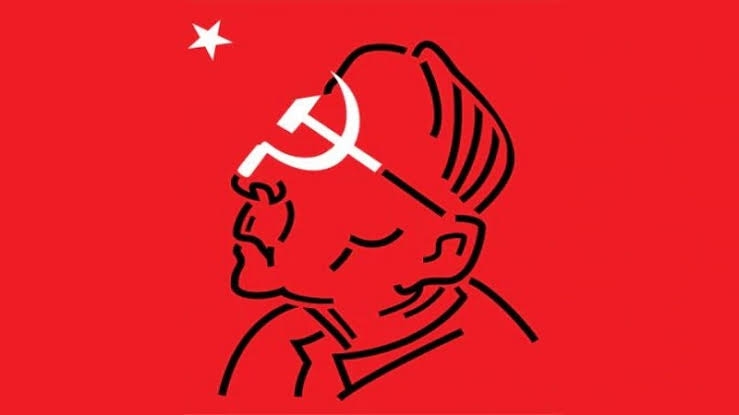
Surjeet, for his part, mastered the art of détente and deals. Between 1992 and 2005, he served as General Secretary of CPI(M). In 2004, after the Lok Sabha elections left no party with a clear majority, Surjeet brokered alliances and provided outside support to the Congress-led UPA, helping Manmohan Singh form a stable government.
Surjeet’s coalition-building was instrumental in keeping right-wing parties at bay and ensuring that left parties had leverage in policymaking.
Thus unfolds the arc of irony: the same leadership once demonized as security threats by the Congress regime in 1962 later became indispensable political allies.
The Congress, which ordered the detention of Basu in the name of nationalism, ultimately courted him as a prospective Prime Minister. Conversely, Surjeet, whose arrest as a Chinese agent is debatable, found his strategic niche in propelling Congress back to power decades later.
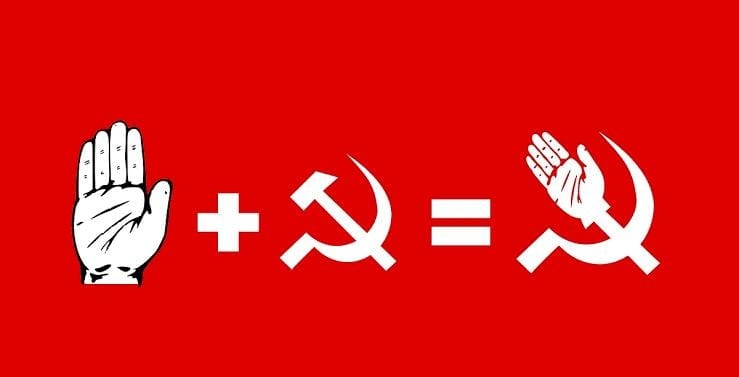
This turn of events invites searing questions of political morality and ideological consistency. Why did the Congress government of the 1960s regard communists as existential threats, only to recruit them later as political capital? Why did the Communist leaders, once jailed for their “anti-nationalism,” become skilled negotiators and power brokers within the system they once rejected?
Critics lambast both parties. The Congress is accused of hypocrisy and opportunism, weaponizing national security when in power, then seeking cynical alliances when weakened. The Communist left is criticized for losing its ideological moorings and engaging in transactional politics contrary to its egalitarian claims.
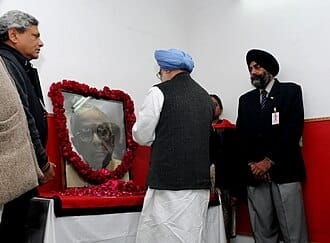
As Indian democracy evolves, these stories demand reckoning. History must not be sanitized; the archives and court records must be opened; party memoirs and internal documents must be examined. The public deserves clarity on how “national security” laws were misused, how political prisoners were rehabilitated as political assets, and how the line between principle and expedience blurred over decades.
The tale of Basu and Surjeet underscores a deeper truth: in Indian politics, yesterday’s dissidents can become today’s power brokers, and ideological purity often bows before electoral strategy. As long as parties choose convenience over conviction, the citizenry will remain hostage to such historical paradoxes.


